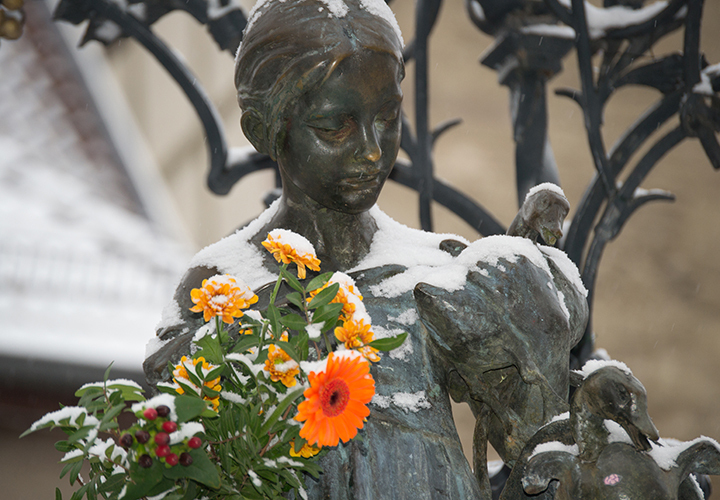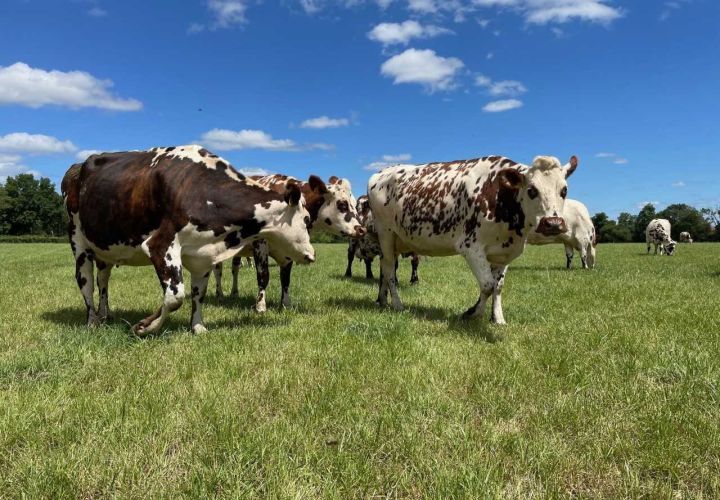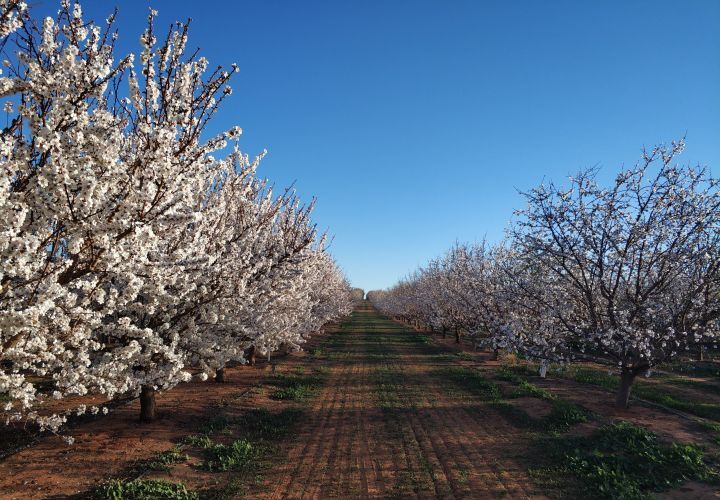The University of Göttingen is an internationally renowned research university. Founded in 1737 in the Age of Enlightenment, the University is committed to the values of social responsibility of science, democracy, tolerance and justice. It offers a comprehensive range of subjects across 13 faculties: in the natural sciences, humanities, social sciences and medicine. With about 28,000 students and more than 210 degree programmes, the University is one of the largest in Germany.
New press releases

Health, happiness and prosperity in the New Year!
For 2025, we would like to wish health, happiness and personal and professional success to all students, staff, guests and alumni of Göttingen University and Göttingen Campus.
more…
Two new Research Training Groups in Göttingen
The German Research Foundation (DFG) has funded the establishment of two new Research Training Groups (RTGs) at Göttingen University. The RTG “Mobility Rights in the Global Context of Multiple Crises” uses a socio-legal approach on migration. The RTG “Understanding and using therapy-induced adaptation processes in gastrointestinal tumour diseases” has the goal to understand the mechanisms of adaptation to therapy in gastrointestinal tumours and to use them to therapeutic advantage.
more…
Prospects for milk production: More protein and a healthier environment through grass feeding
How can milk production be made more sustainable? And how does feeding concentrates influence sustainability? Researchers at the University of Göttingen and the Kassel Institute for Rural Development have investigated protein utilisation on dairy farms and shown that grass-based and low-concentrate feeding of dairy cows ultimately produces more protein for human consumption. It also reduces the environmental impact by minimising excess nutrients in ecosystems.
more…
Pollinators, pollen and varieties determine fruit quality
Pollination by animals contributes to a third of global food production, but little research has been done into the extent to which the identity of pollinators, pollen and crop varieties influence fruit quality when it comes to the nutritional, sensory and commercial value of crops. Pollinators influence the quality of crops through their movement patterns on the plantations and through the plant variety they visit. In an article published in Trends in Plant Science, researchers from the University of Göttingen argue that the blanket promotion of pollinators has so far been too much of a priority.
more…
Lifesaver for wild bees: the importance of quarries
A research team at Göttingen University, Germany’s Nature And Biodiversity Conservation Union (NABU) in Rhede, and the Thünen Institute in Braunschweig has investigated the importance of limestone quarries for wild bee conservation. Diverse landscapes with good connectivity between quarries and calcareous grasslands proved to be particularly valuable. Calcareous grasslands – meaning grasslands on chalk or limestone soils – are exceptionally rich in plant and animal species, making them valuable ecosystems.
more…
Using AI to understand brain function
The European Research Council (ERC) has awarded a Consolidator Grant to the computer scientist and neuroscientist Professor Fabian Sinz. The project “Vision2Action: A data-driven computational framework to discover how behavior impacts processing in mouse visual cortex” has been awarded around two million Euro for five years. In the project, Sinz and his team plan to develop new machine learning methods to understand how motor movement influences visual processing in the brain.
more…






















